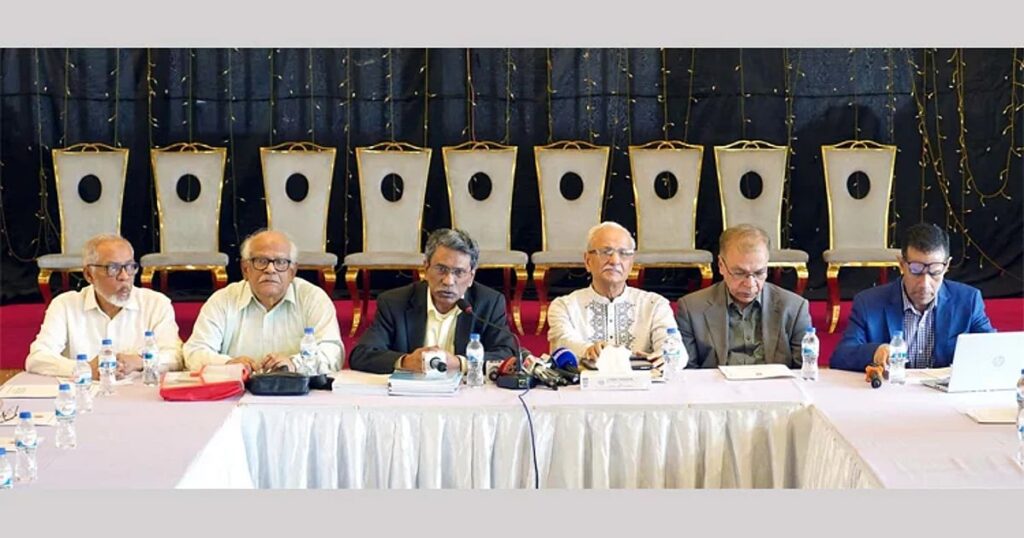“It wasn’t possible to reach a consensus on several significant constitutional issues,” Riaz told reporters in Dhaka, saying talks stretched over 45 sessions.
“We have been discussing 166 recommendations with 38 political parties and alliances.”
Riaz, a political science professor at Illinois State University, said the teams would not give up.
“We are going to begin a second round of talks,” he said, adding that the country’s statistics bureau would “conduct a household survey to gauge public opinion”. The commission plans to include 46,000 families in the survey.
Contentious issues include whether a prime minister can serve more than two terms, and the process for selecting the president.
The procedure for appointing the chief of the interim government, and the duration of its tenure, has also divided parties, Riaz said.
Parties also debated recommendations to change the terms of the constitution from “secularism” to “pluralism”.
Bangladesh is a Muslim-majority nation, with Hindus accounting for less than a tenth of the population.
“Although most parties rejected the idea of pluralism, they recommended incorporating some form of protection for minorities,” he said.

